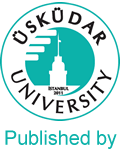Makale
Makale
Çıkar ve Güç Dengesi Kıskacındaki Ahıska Türkleri Sorunu
The Issue of Ahıska Turks in The Clamp of The Balance of Power And Interest
ÜREN Mustafa
Yıl 2016, Sayı 2, Sayfalar:1-39
The issue of Ahıska Turks has very ancient roots in historical perspective although it started with their deportation on 14 November 1944. The linkage with the Russian interest is one of the most important aspects of the issue, which still remains unsolved. Ahıska Turks, who started the repatriation campaigns in 1956, have yet to accomplish many tasks. The issue, together with the collapse of the Soviet Union, gained an international status. Georgia opposes the repatriation of Ahıska Turks. But it was forced to accept the condition of the repatriation for achieving the membership of the Council of Europe in 1999. Accordingly, Georgia, which was to complete the process of the repatriation in 2011, has deliberately tended to leave the process unsolved although it approved the law of the repatriation in this context on 11 July 2007. The parties to the issue are Georgia, Russian Federation, Turkey, as well as Meskhetian Turks. Interest is the essential factor to shape the policies for each side of the issue. However, the geostrategic position and identity of Ahıska Turks are also important in shaping the aforementioned policy. As a matter of fact, two factors in question, effective in the decision of Ahıska Turks’s deportation, are enabling linkage with Russian interests. Additionally, the balance of power constituted in Caucasus in the era of post-Cold War also had an adverse impact on the solution of the issue. There can be no result of any peace initiative started by regional and global organizations just because of this absolute relation.
Ahıska Türkleri Sorunu, Ahıskalıların 14 Kasım 1944’deki sürgünüyle başlamış olsa da, kökleri çok daha eskiye dayanmaktadır. Sorunun Rus çıkarlarıyla bağlantısı, çözümsüzlüğünün en önemli nedenlerinden birini oluşturmaktadır. Ahıskalılar, 1956 yılında başlattıkları geri dönüş mücadelesinden henüz bir sonuç alamamışlardır. Sovyetler Birliği’nin dağılmasıyla sorun, uluslararası bir nitelik kazanmıştır. Gürcistan, Ahıska Türklerinin geri dönüşüne karşıdır. Ancak 1999 yılında Avrupa Konseyi’ne üye olma şartı gereği, Ahıska Türklerinin geri dönüşünü kabul etmek zorunda kalmıştır. Buna göre geri dönüş sürecini 2011 yılında tamamlaması gereken Gürcistan, 11 Temmuz 2007’de geri dönüş yasasını onaylamasına rağmen, süreci kasten sürüncemede bırakma eğilimindedir. Sorunun tarafları; başta Ahıska Türkleri olmak üzere Gürcistan, RF ve Türkiye’dir. Tarafların soruna yönelik politikalarını belirlemede çıkarları etkili olmaktadır. Bununla birlikte Ahıskalıların kimlikleri ile Ahıska’nın jeostratejik konumu, söz konusu politikayı şekillendiren diğer iki önemli faktördür. Bu faktörler, Ahıskalıların sürgün kararında etkili olduğu gibi, Rus çıkarlarıyla ilişkisini sağlayan asıl etkenlerdir. Bunların yanında, Soğuk Savaş sonrasında Kafkasya’da oluşan güç dengesi de, sorunun çözümünü olumsuz yönde etkilemektedir. Sorunun Rus çıkarlarıyla bağlantısından dolayı, bölgesel ve küresel örgütlerin barış girişimlerinden sonuç alınamamaktadır.

